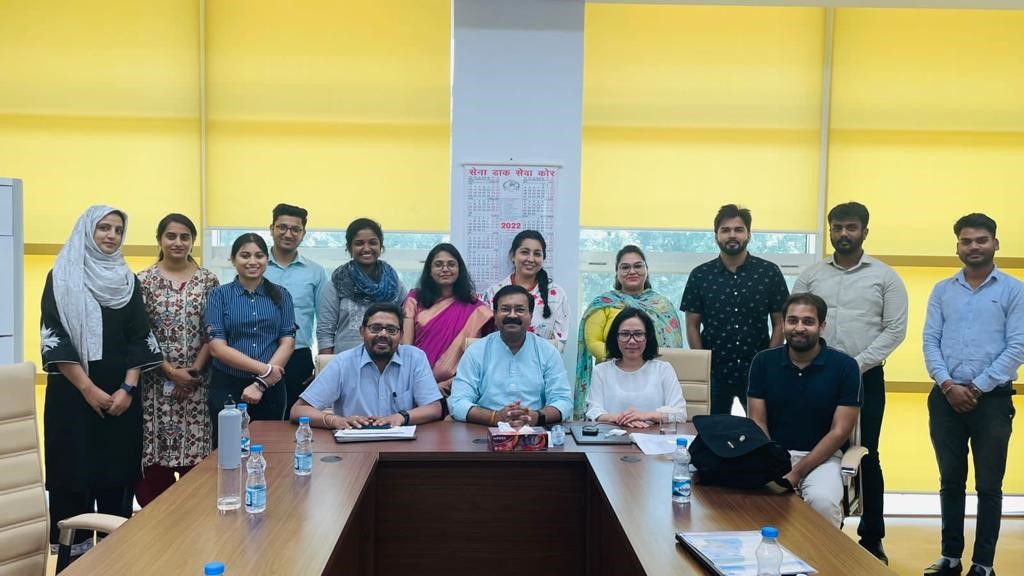
Wetland conservation: A Nature-based Solution for Reducing Water-Mediated Disaster Risks
-
Climate and disaster risks
Wetlands International South Asia, in collaboration with National Institute of Disaster Management and (NIDM) and UN Environment Programme (UNEP) organized a one-day national consultation workshop for disaster management professionals on 26th April, 2022. The consultation was organized under the aegis of project “Upscaling community resilience through ecosystem-based disaster risk reduction”. The aim of the workshop was to scope pathways for replication and upscaling of wetlands conservation as a nature-based solution for mitigating water-mediated disaster risks. The event saw participation from over 35 experts from prominent Government bodies, Knowledge institutions, United Nation agencies and Civil Society organizations.
The session commenced with Dr Ritesh Kumar, Director of Wetlands International South Asia, highlighting the pivotal stance taken by India of managing disasters by conservation of her natural ecosystems. Dr Karen Sudmeier-Rieux, Senior Advisor, UN Environment Programme, Geneva presented global scenario on nature-based solutions while her colleague from India office, Ms. Neha Kurien, informed participants about ways of integrating concepts of Eco-DRR with India’s flagship scheme of Mahatma Gandhi National Rural Employment Guarantee Scheme.
Apprising participants of role wetlands play in disaster risk reduction, Mr. Dhruv Verma from Wetlands International South Asia, asserted that wetlands are not just shock absorbers but their conservation and management can help in preventing and recovering from disasters.
Prof. Anil K. Gupta from NIDM emphasized on the importance of upscaling NBS from pilot-scale to large-scale implementation. Also, while stressing on peri-urban and urban areas as potential upscaling site for such Nature based Solutions, he also suggested ways and means of mainstreaming wetlands conservation within various schemes and programs of government for achieving disaster risk reduction.
Endorsing the concept of wetlands as a potential Nature based solution, representative of United Nations Convention to Combat Desertification asserted on critical need for wetlands management, conservation and monitoring for realization of such a function.
State Disaster Management authority personnel from Kerala, Bihar and Odisha discussed about endeavors being undertaken by their respective departments in this direction and also urged authorities for facilitating capacity building activities for disaster professionals as well as community. Need for stringent regulatory and monitoring measures for wetlands conservation was also emphasized.
Speaking on the need to understand the societal challenges around the implementation of NbS, Dr Shalini Dhyani from CSIR-NEERI opined about the urgency of taking into cognizance economic and social coast related to such implementation along with involvement and incentivization of local communities.
Overall, the deliberations highlighted the need for standardizing NbS principles for effective policy integration and implementation, robust scientific and socio-economic assessments for evidences building, strengthening communities and their institutions in wetland conservation, and promoting sectoral convergence for integrated planning and implementation of wetlands conservation in disaster and allied sectors.
Check this space for workshop report that will be added shortly.
Contact: Dhruv Verma at [email protected]
